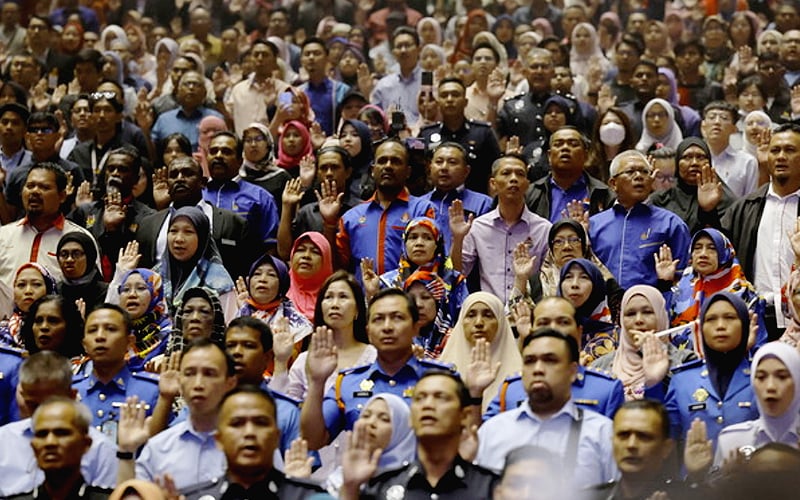
PETALING JAYA: Prudent spending of retirement funds is more important than debates about the merits of replacing the pension system with EPF contributions for new civil servants, says an economist.
Universiti Tun Abdul Razak’s Barjoyai Bardai said rather than argue about whether the EPF provides civil servants with a less secure financial future than the current pension scheme, discussions on the topic should revolve around how best to develop post-retirement financial discipline.
Barjoyai said although private sector employees who started working in the mid-1970s may have retired with RM1.5 million in their EPF accounts, some of them depleted a significant portion of their savings a decade after retiring.
“At the end (of their career), they withdrew all (their EPF savings) and spent RM1.5 million in 10 years. They didn’t have discipline,” he said.
“Some bought houses, new cars and so on. And in less than two years, the money was exhausted. They live up to 75 or 80 years old, they have a home, but no cash.
“They should have kept that RM1.5 million in their EPF accounts and withdrawn RM7,000 monthly. If they did, they would have been able to keep their principal amount intact pretty much forever.”
Yeah Kim Leng of Sunway University said Malaysians need to be prepared for declining purchasing power during their golden years in light of the rising cost of living.
Given longer life expectancies, he said Malaysians should consider extending their retirement age and seek additional income sources.
“It would be prudent for civil servants to ascertain whether the savings pool of, say, RM1.36 million at age 60 is adequate to meet their desired lifestyle and financial needs upon retirement,” he said.
Bank Muamalat Malaysia Bhd chief economist Afzanizam Rashid shared a similar view. He said both civil servants and private sector employees must have the knowledge and skills needed to make astute long-term financial decisions.
“What is more important is financial literacy and how finances are managed,” he said when asked about the benefits of the EPF scheme versus the pension system.
Last month, deputy prime minister Ahmad Zahid Hamidi said new civil servants would no longer receive pensions but would contribute to EPF and the Social Security Organisation (Socso) in a bid to alleviate the government’s financial burden by reducing pension payments.
Cuepacs, the umbrella body for civil service unions, said it disagreed with the policy as most civil servants say the pension scheme is the “best option” for them.
At present, civil servants are allowed to choose between the pension scheme and contributions to EPF.
Cuepacs president Adnan Mat said that due to the “current low salaries” in the civil service, the EPF contribution scheme is seen as “inadequate” in helping civil servants build a substantial retirement fund.
Political parties have also weighed in on the matter, with Bersatu information chief Razali Idris urging the government not to abolish the pension scheme for new civil servant hires.
He told Berita Harian that civil servants should be allowed to choose between staying in the government salary scheme with a pension, or increasing their salary with contributions to the EPF.
Under the current pension scheme, the government contributes 17.5% to civil servants’ pensions. The contributions to civil servants’ pensions are 24% under the EPF scheme, with the government contributing 13% and the civil servants 11%. - FMT



No comments:
Post a Comment
Note: Only a member of this blog may post a comment.